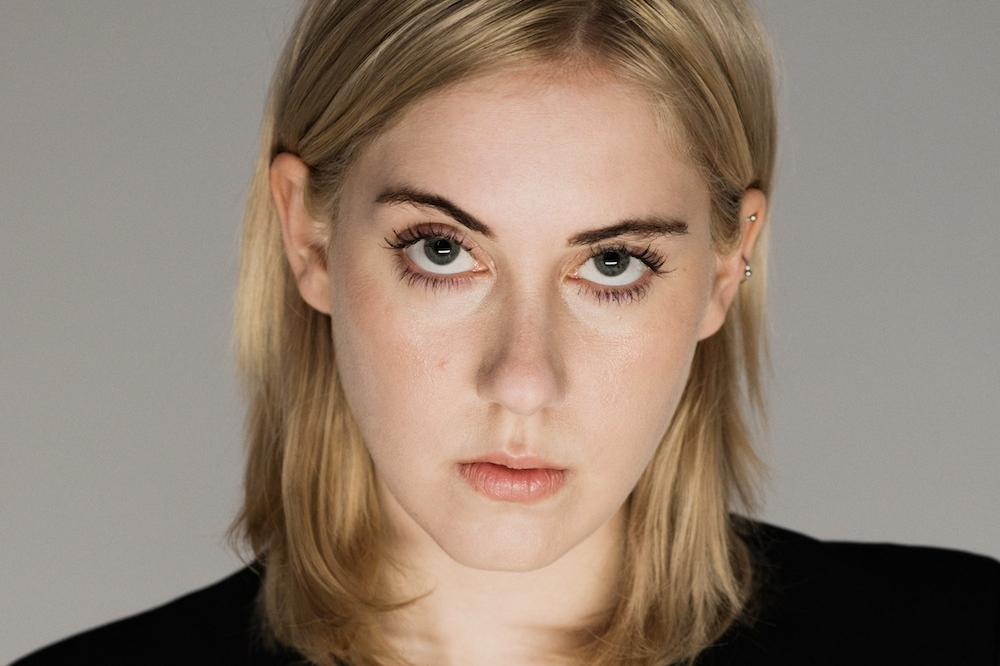Torres knows the darkness. The Brooklyn-based singer-songwriter otherwise known as Mackenzie Scott waits until anything—an idea, an emotion, a memory—gnaws at her, tearing at her fingers and throat until she releases it in song. Her husky voice strains against its human biological constraints like a wild-eyed horse, whispering desperately "Don't give up on me just yet" on one end and yowling about jealousy with unnerving intensity on the other. Following her self-titled debut in 2013, Torres pushes herself to even noisier extremes on Sprinter, a punishing self-examination of epic spiritual and musical proportions.
A keen awareness of Scott's place in her family and in the world suffuses Sprinter, contributing to themes of alienation throughout. "You're just a firstborn feeling left behind," she sings on the ominously brewing "Son, You Are No Island," which references one of Scott's influences on this record: English poet...
Show the rest
Torres knows the darkness. The Brooklyn-based singer-songwriter otherwise known as Mackenzie Scott waits until anything—an idea, an emotion, a memory—gnaws at her, tearing at her fingers and throat until she releases it in song. Her husky voice strains against its human biological constraints like a wild-eyed horse, whispering desperately "Don't give up on me just yet" on one end and yowling about jealousy with unnerving intensity on the other. Following her self-titled debut in 2013, Torres pushes herself to even noisier extremes on Sprinter, a punishing self-examination of epic spiritual and musical proportions.
A keen awareness of Scott's place in her family and in the world suffuses Sprinter, contributing to themes of alienation throughout. "You're just a firstborn feeling left behind," she sings on the ominously brewing "Son, You Are No Island," which references one of Scott's influences on this record: English poet John Donne's 1624 poem Devotions upon Emergent Occasions. Scott's tortured wailing circles spirals downward around itself, reflecting in a dark mirror the feelings of an adopted child. "Whether it be abandonment, or fear of rejection, or perhaps inability to connect with people, comes down to that fear of isolation, of not being good enough," says Scott. "Those are themes that have cropped up in my personal life, in my writing.”
But Scott escaped the confines of her churning mind in order to find herself by recording Sprinter in the market town of Bridport in Dorset, England; and then at the Bristol studio of Portishead's Adrian Adrian Utley. With his guitar riffs and synthesizers lingering in the background like a lowland mist and PJ Harvey's Robert Ellis and Ian Olliver on rhythm—the two fortuitously reuniting 23 years after the release of Dry, and in Scott's 23rd year of living—she crafted a "space cowboy" record. "That's as simply as I can say it," says Scott, who cites inspirations as diverse as Funkadelic and Nirvana, Ray Bradbury and Joan Didion,. "I wanted something that very clearly stemmed from my Southern conservative roots but that sounded futuristic and space-y at the same time."
It seems like an odd thing to look for in the picturesque seaside green, rolling hills in the south of England, but Scott had never been there before, and as a stranger in a strange land she found what she was looking for: a lost childhood. Sprinter was recorded in a room that had formerly been used as a children's nursery, which combined with the alien landscape fuels the self-searching that roils Torres' music. "Cowboy Guilt" perfectly encapsulates the contrast of Deep South conservatism with future sounds, juxtaposing George W. Bush parodies with wearing one's Sunday best, bouncing on a mechanically whimsical melody.
After all, it was Scott's Baptist upbringing 4,000 miles away in Macon, Ga. that gave her a voice in the first place. When her parents gave her an acoustic guitar at age 15, after giving her flute and piano lessons before that, she would sing church hymns at the local nursing home to get over her stage fright. As Scott moved away from organized religion toward something far more real and personal ("I still think of myself as quite God-fearing," she says), she ranged farther from home, to Nashville—where she grappled with her outsider status yet again, faced with an insular music scene as hard to break into as if it were surrounded by England's famous hedgerows—and then to New York, where she finally felt another semblance of being at home.
"Nashville was just a bit too small for me," she says. "I don’t really like walking down the street and knowing everyone that I see along the way. I was raised in a small town and there are very special things about it, but I don’t prefer to live that way. I like the chaos of the city."
Hide the rest












